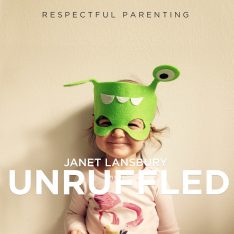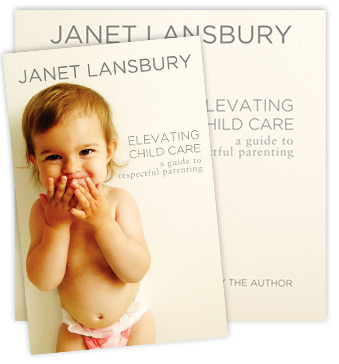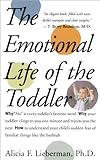I’ve noticed that I am much more confident and in control of my emotions/responses on the weekend when I have not spent the majority of my day at work, away from my son. The rest of the time, especially when I’m tired or unfocused, I feel that I am poorly responding to his tantrums, demands, and neediness.
It is scary to find that I can so quickly call up and repeat the responses I received from my father…yelling, shaming, lecturing, and tantrum-ing right back. After every episode I commit to myself and to my son that I will try harder and do better in the future, but in that ‘heat of the moment’ my intentions are like a pixelated image in a far corner of my memory, too fuzzy to be realized. It is even scarier to me that my inability to project patience, guidance, and love means that my son will have the same challenge and repeat the cycle when he becomes a parent.
Do you have suggestions for meditative practices, mantras, etc. to help parents center and calm themselves while in the heat of the moment?
– Concerned Parent
My mantra for parents is also one of our biggest challenges: Let feelings be. Accept tantrums, meltdowns, whines, neediness, disappointments, sadness, major and minor complaints without judgment. Our children’s feelings and desires are involuntary and do not belong to us. Managing, calming, or otherwise “fixing” them is not our responsibility, nor is it helpful to them.
So, rather than trying to respond “properly” and risk becoming affected by our children’s moods, focus on letting feelings be. Our children’s emotional expressions (no matter how unreasonable, ridiculous or unfair they might seem) need to be okay with us as is, for as long as they last. Our acceptance is what allows them to be expressed in a healthy manner.
- When your daughter can’t stand her little brother, let her feelings be. Acknowledge, “He’s bugging you right now.”
- When your son doesn’t want to play with the other kids on the playground, let his feelings be. Assure him, “You can sit with me for as long as you like.”
- When your child is upset because the sun disappeared behind a cloud, let her feelings be. “You wanted the sun to keep shining.”
When we let feelings be, we let go of reacting and, instead, stay anchored, accepting ups and downs, letting life flow.
Remember that our reasonable limits don’t cause our children’s feelings, but rather provide children the opportunity to release feelings that are already there. Trust this process.
Your child wants you to keep playing, but you need to do something else. You let his feelings be by staying calm and moving on. “You are holding onto me. I feel that, but I’m going to remove your hands so I can get our dinner ready. You’re upset about that.”
Letting feelings be doesn’t mean being permissive or giving in to our child’s demands or wishes. In fact, acceptance usually requires we do the exact opposite. Holding firmly to our boundary or position gives children the message that their disagreements and disappointments are perfectly acceptable.
“You didn’t like it when I took you out of the bath. You wanted to stay in longer.”
When we let these feelings be we connect deeply with our children and encourage them to process emotions, build confidence and resilience.
Emily’s story is a perfect example:
I wanted to share a quick story that illustrates how well your philosophy works. I just got home from a 2-week business trip abroad, and while my daughter did very well (according to my husband), she started acting up and fussing more frequently towards the end of the trip (understandably). She was very happy when I got home but still threw a few fits – mostly about things like getting in the car seat, not wanting to change… the usual.
At dinner last night, my husband and I were discussing this and wondering how we should handle these mini-tantrums and why they were continuing now that I was back. Once we were done with dinner, we began clearing the table and getting my daughter ready to wash up. She started melting down and crying no! and grabbing for the table, so we offered her another bite or two of dinner thinking maybe she was still hungry. She wasn’t. She just wanted to keep hanging out at the table. We were done, though, so my husband took her to the sink, crying all the while, and washed her hands and face. She was inconsolable. As soon as she could, she ran back to the high chair and climbed in, sobbing because now dinner was over and we were cleaning up.
Remembering your thoughts about acknowledging our children’s feelings without judgment, I took her into the living room and sat her down. Just as she shouted no! and tried to leave, I said, “You want to keep sitting at the dinner table.” Period. She gave a BIG, shuddering sigh/sob, looked at me and quietly said, “Yeah.”
So, I said it again: “You want to keep sitting at the dinner table.” The tantrum stopped. Just like that. We sat quietly for a minute, and again she said, “Yeah,” and then it was over. She came and helped me finish clearing the table and cleaning up.
Later, she brought out a small stack of little plates and we pretended to set the table and sit at it. It was a happy little pre-bedtime game. My instinct was to say, “But we are all done! No more dinner! Let’s do something else!” I’m so glad I had read your post about this and was able to just listen to her and let her feel what she was feeling — understood and comforted. What a relief for all of us!
Emily
***
At last! I’ve created the No Bad Kids Master Course to give you all the tools and perspective you need to not only understand and respond effectively to your children’s behavior but also build positive, respectful, relationships with them for life! Check out all the details at nobadkidscourse.com. ♥















So important. Let feelings be. Don’t react.
Thanks, Rick. Yes, and it is easy to say, but very hard to do. After knowing this for 20 years now, I still fall into wanting to “fix”.
What happens when 5yr old starts kicking out of anger abt something? Holding him (with “i wont let you kick me”) doesnt work, only makes him kick harder the second he is released.
thanks for the wonderful post.
I have this problem going on with my one year old daughter for a few months and I really appreciate any help from every body . my daughter wants me to sit by her side all the time and as long as she is siting by me or in my lap, she is happy and OK, but as soon as I stand up to do the house chores she starts crying and screaming. even though I acknowledge her feeling with a sentence like this: “you don’t want me to stand up, you want me to sit near you” , it really doesn’t cause any change in her behavior and if I don’t sit down soon, she would through a tantrum and meanwhile she does this really dangerous thing , throwing herself back without considering what is behind her so she can really damage her head by this action.
most of the times I just give up and sit. I know that’s not right but I really don’t know what to do instead.
I would be truly thankful if anybody can help.
pardon my English, I am not a native speaker.
Haniye – have you tried holding your daughter in a sling or carrier while you do housework? my son went through a phase like that around the same age, and our Ergo carrier was a great help and saved me and my son a lot of crying and screaming 🙂 Acknowledging is one thing, but sometimes kids are just going through an extra-needy, clingy phase.
I really appreciate your help but isn’t it against RIE approach?
Hi Haniye! I agree with Tami (below). I would also take a look at your tone… Are you feeling nervous or anxious when leaving your daughter’s side? Anticipating a problem, perhaps? Children pick up on these feelings and this makes them very uneasy. Remember, there is no way your daughter can get comfortable when her mother isn’t. So, when you need to leave, project confidence! Also remember that your daughter’s separation anxiety is developmentally appropriate. There is nothing “wrong” with her. I would try to let go of worrying about her hitting her head, etc., because fear will definitely get in your way. Here’s a post that might help: https://www.janetlansbury.com/2012/04/calming-your-clingy-child/
Your English is great!
I don’t know if I’m happier that you answered me for the very first time or that you approved my English! 🙂
thank you .
Actually I let my daughter cry and even some of our neighbors in the building have shared me their worries about my daughter’s health, asking why she cries so continuously most of the times and all I can tell them is that she would be quite and OK if I never stand up!!
but maby I feel worried and anxious a little bit and she might have picked up on that. I would try harder to project confidence next time.
thanks again.
It might be that it is a self-feeding cycle – when you don’t “let the tantrum be”, and rather become distressed yourself, it is causing the tantrum to grow larger, because your child can see your distress.
If you see the tantrum coming on, you can carefully lead your child away from anything that might be behind her, so that she does not knock her head on anything as she falls down. Be calm but ready to place your hand behind her head if she throws herself backwards (stopping her from hitting the floor hard), but try to react as if you were watching from far away. It is scary when your child’s behaviour seems out of control, but if you commit to staying there for as long as it takes for the tantrum to wind down, patiently waiting for her express herself, then she will become less distressed.
You could try a situation where you engaged with your child in play, and then bring something over so you are near her but not sitting next to her. Explain to her what will happen – “I am going to play with you for a little while, then sit on the lounge and…” For example, you could sew, do a crossword. Look in on her occassionally, if she wants to show you something, but if she comes over to you, say “you are playing now, and I am busy sewing/writing/whatever”. Then move so the two of you are in adjacent rooms (your daughter in the lounge room, you in the kitchen).
If tantrums happen, let them happen, remain calm and say “I see you are upset because I am not sitting next to you. It is hard to do something different, isn’t it?”. Wait, wait, wait, be calm and in control.
After you show your daughter you’re not distressed by her tantrums anymore, the separation will become easier. If you are not scared/angry/upset, she knows she does not have to be scared. Then you can slowly move further away until she is “okay” with it.
Kim,
I love these helpful bits from your comment:
“try to react as if you were watching from far away”
“Wait, wait, wait, be calm and in control”
this is a wonderful site , not just because Janet’s post are owsome(which they actually are) but also because of the nice and kindhearted community that Janet has gathered together here.
thanks a lot for your time and your detailed answer. I will definitely follow your advises and I really think they would work.
thank you
Wonderful response, Kim! I couldn’t agree more.
Hi Haniye, first of all, I agree that your English is beautiful! I have another suggestion-
Since your daughter doesn’t want you to move away from her, ask her to follow you, as you need a “helper.”
She will love helping you with the small, tiny 1 yr-old tasks that you point out for her to do. Children Love to feel needed. It’s the best of both worlds!
Hi. Your English is just fine. There are some good responses here, and would just suggest adding in a warning to your daughter before getting up, like “Daddy will be getting up to start dinner in 5 min”. Then give a one minute heads up, then follow through. All the suggestions of giving her some special engaged time then slowly moving away to parallel activity are great, as is asking her to come and help, even if it is giving her a spoon and pan to play music on or something like that. I also sometimes give my littles a choice, like “would you like to play for 2 or 4 more minutes before mommy does some dishes?” That let’s her know you will be doing something different soon, and gives her a reasonable amount of control over when that happens. I use timers with my kids because it takes the focus of autority off of me and puts it on the timer. The timer says time to do this now, not me. Hope that helps.
Haniye
I think the reason that it isn’t working for you is because in the end you don’t actually follow through and go do what you need to do. You come and sit back down with your child, so she is getting the idea that when she tantrums you will come back and sit with her. It is probably very confusing to her, and may make her feel a little anxious. My thoughts are that if you use the language and then follow through it will eventually work, just may take a little time as she will have to discover that you have a different response now.
It was really kind of you to answer me. thanks
How does this translate to helping them accomplish tasks? My daughter does well in wanting to try something on her own, but when she gets frustrated she asks me to do it for her. Does it help her process emotions by encouraging her to try again if she wants to, or is it more respectful to assist her as she requested, knowing she will “get it” on her own time?
Good question, Chris. I hope you don’t mind if I answer you with another post I’ve written… I feel like this covers your issue much better than I can this morning on my way to work. 🙂 https://www.janetlansbury.com/2012/09/when-children-cant-do-it-and-how-to-help/
A post I’m sure many parents relate to. Some of it is about letting go of the control. ‘So I was going to prepare dinner, have a cup of tea, do some housework whilst you napped but you’ve decided to nap for just 20mins….argh!’ The ability to ditch a plan and start a new one without your own feelings of stress or bitterness. I occasionally catch myself responding as my mother did, and even worse I know I’m doing it but I can’t stop. And then of course the parental guilt!
One of the things rie is teaching me is that we are all human, with emotions and saying sorry really helps. The more I try to understand my baby the calmer I get.
What a great post! Your blog has really helped me be a better mother and I continually come back to remind myself.
I have a question about my 6 yo son. He has a hard time transitioning, especially when there is a change of plans and tends to whine, gripe and complain for long periods of time when we’re doing something he doesn’t want to do or hadn’t planned on doing. My question is how long to let him complain and whine. I always try to acknowledge his feelings, “I know you don’t want to go to the store right now; you wanted to keep playing. That’s hard.” But then he keeps. on. going. After a while I start to feel bullied and disrespected (this is usually in the car so I can’t just go to another room). How can I allow him to express his disappointment while practicing self care?
Thanks, Lindsey! Usually children continue the griping and whining because they sense we are bothered by it. So, as challenging as this might seem, I suggest totally “unplugging” your feelings around this…. Again, just let his feelings be. It sounds like you are getting hooked in, because otherwise you wouldn’t feel bullied. Let his feelings be about him. They are not your responsibility. Remember, acknowledging the feelings doesn’t always magically end the crying or complaining. If we get caught up in believing, “I’m doing everything I’m supposed to do, so why won’t he stop?” we aren’t letting feelings be.
Sometimes I suggest parents sing “la-la-la” to themselves (NOT out loud). That can help us let feelings be and just carry on.
Lindsey, When my kids were little and I didn’t want to listen to complains anymore, I’d say, “The complain department is closed.” Then you have to follow thru and walk away or not respond.
Janet, this post filled me with a kind of feeling I am having trouble putting a word to: a kind of longing combined with happiness…happiness that so many parents are getting such wonderful ad critical insight and advice. More power to you!
Thank you for your optimism, Ruth!
Question: Our 3 1/2 year old takes tantrums to a level that we have a hard time “letting it be.” Example: His initial response often bypasses a typical tantrum and moves straight into, for example, throwing a rock or ball at my husband, me or a teacher, kicking his little sister if she’s nearby (even if she has nothing to do with the situation), or some kind of physical lashing out. This doesn’t happen every time, of course. Many times we get a typical tantrum. We would love your thoughts on acknowledging his feelings and simultaneously teaching him that unsafe reactions are not acceptable. The language we currently use goes something like, “We understand that you’re angry, and being angry is okay, but being unsafe is not okay.” Consequences usually involve time in (sitting out with one of us sitting with him), walking him through his calm down steps (deep breaths, count to 10, hug himself and if still upset, ask a grown-up for help), or having some other privilege taken away (if it’s related to the tantrum). Thoughts?
Hi Melissa, I’m a little concerned that your post wasn’t answered more head-on. The other post regarding the pinching for attention was answered by letting the child know it’s unacceptable and needs to stop- and I hope it has.
But your son’s burts of over-the-top anger sound similar to the one my daughter had once during my divorce to her father when she was 4. Needless to say, it was an Extremely emotionally time for her, but we dealt with it once, and it has never happened since.
I believe that unsafe situations like this call for Immediate action, and the talk of understanding the anger needs to come later, when processing the incident with your child.
Kicking or throwing rocks at another person needs to be Stopped Right Then.
My daughter was in such a fit that she began kicking chairs around the kitchen and knocking over plants. I looked her straight in the eyes one time and told her to Stop. Now.
Of course her 4 year-old brain was having none of it, so I Immediately sat her down on my lap on a chair in the center of the kitchen, out of harms way of damage to her feet by kicking anything.
She needed, and needs to know that I am in charge, and can handle and akways keep her safe in any situation.
Yes, she angrily flailed in my arms, and so I held hers safely. She tried to kick my legs, so I kept hers safe with mine. When she tried bashing her head against my chest, I wrapped my body around her little body and told her I loved her, and she felt safe, and eventually, in control of her own little body again.
And said to me after, “Wow, mommy, you really helped me when I was so angry. You stopped me from doing all that crazy stuff!”
And she’s never been so harmfully, Physically out of control since. Although don’t get me wrong, just like any normal 8 year-old girl, still loves a good FIT!!
I really feel your son just needs to know once and for all his parents truly have ALL the control, at the times he has Truly Lost ALL of his.
I think this response is spot on. I noticed that Concerned Parent wrote that she feels scared that she’s repeating what she grew up with. To me, it sounds like she’s suffering too. I imagine that if Concerned Parent is feeling out of control, her son is too!
Here are some tools that might help with that.
1st — Mindfulness might be an invaluable resource for identifying what feelings you’re experiencing as the adult. Can you identify how YOU feel in those moments “I feel edgy, my hearts racing” etc. The Greater Good Science Center has some great information, John Kabat Zinn has some helpful books, and many local organizations provide mindfulness-based stress reduction classes.
2nd — Can you tap into some empathy for yourself before helping your son? It’s kind of like those oxygen masks in airplanes. “This is a really hard place to be in. I feel pretty darn uncomfortable.” You can recreate for yourself the same sense of relief and comfort children feel when their feelings are named.
3rd — I’m not a psychologist, but a great therapist might be helpful. In particular, I’d imagine that some of the cognitive-behavioral therapy approaches would be valuable (e.g. recognizing how thoughts impact feelings, identifying automatic thoughts, learning how to replace them). CBT is considered an effective and robust treatment for anger management after a couple decades of research.
I never realized how powerful my own emotions were until I had my first child. We started doing yoga together as a family so that we can have some calm time together. Usually the kids only want to do it for 5 minutes, but even that brief amount of time helps me breathe, which in turn helps me weather the emotional storms.
Hi! I just recently found your website and am now trying to grasp the concept of RIE parenting.
I get the part where the parent acknowledges the child’s feelings (“You wanted to keep sitting at the table”), but could you please explain why it would be harmful to go on to say “But we’re all done with dinner. Let’s go do something else now”?
To me it feels like a logical part of comforting the child, after you acknowledged her feelings…
Thank you!
Generally children are not logical or reasonable when they’re sharing big emotions, so it’s not helpful to try to reason with them at that time. It can also come off as though the feelings they’re having about whatever it is are inappropriate since (xyz reason). I suppose we can think of how we would like to be responded to when we are being fussy and unreasonable. Generally explanations don’t help me as much as empathy does.
My 3.25 year old has been pinching a lot lately. Not in malice but when she is hugging or holding my hand or close to me. She used to grab my breast ( and that of other family members!) but now is pinching. It hurts!! How can I acknowledge and let it be??
Christina, it sounds like she is testing you… and I would definitely not let that be. She needs you to calmly, but definitively stop her. She’s seeking your boundaries.
My question is related to the concerns of Lindsey and Melissa.
When asked sometimes to do something he does not want to do (usually by my husband who asks or suggests kindly) My 3.5 year old son will sometimes reply very rudely. (Imagine, “Da-tteee” in a whiny valley girl voice or grrr or humph! or NO screamed with attitude etc. repeatedly.). Hard to convey in weitten text, but trust me, very sassy and just not kind or normal “disappointed reaction.”
I go back and forth between “validate and then leave it alone” or saying something like, “It’s ok to feel frustrated but it is not ok to be mean or rude to a family member.”
Help!
I am glad to see this post that I missed, before, as I have the same issues and concerns–but find that regular RIE practice is often just the best case scenario for when things are manageable, not when we are at the tenth toddler tantrum of the day and no one is their best self. A lot of the ideas and techniques of RIE are very useful, but if you are not a parent who has the resources of therapy, regular help, time and ways for destressing–and are parenting as someone who grew up in an abusive home, you are parenting with PTSD, you are a survivor of trauma or just someone who otherwise does not have a very deep reserve of patience at all times–the foundational calm required to parent the RIE way feels like a fantasy. RIE is obviously a sanity saving, relationship-forming floatation device that we are all desperate for, but I wish it felt more adaptable to say, the mom that does not have an hour for yoga everyday to find her center.
Jess – I believe it is possible for anyone to let go of responsibility for their children’s feelings. This is a mindset that actually decreases tantrums and creates more peace for everyone, because children feel safer when their emotions are accepted. Yes, it is more challenging to adopt this mindset if one has the issues you mention, but it not unobtainable or pie-in-the-sky. This is no more difficult or stressful than being a reactive, explosive, emotionally controlling parent…
There is a wonderful yogic breath practice that helps to calm yourself down and center yourself.
It’s called Sitali Pranayam. Here is how you do it:
It is known to have a powerful
cooling, relaxing effect on the body, while
maintaining alertness. It is known to lower fevers, and aid digestion.
Curl the tongue into a ‘U” shape.
Inhale through the curled tongue.
Exhale through the nose
For more breath meditations: http://www.3ho.org/files/pdfs/various-breaths.pdf
Hi Janet, as always I enjoy your posts. While I sense that the responses you suggest are wise, they sound so foreign and unnatural to me. I have never heard anyone speak to children in this way. When I read: “You didn’t like it when I took you out of the bath. You wanted to stay in longer.” it’s hard for me to imagine what tone and facial expression go with these responses. Are there any videos that you recommend? I feel like this visual would help me understand RIE better.
yes! i think this would be helpful too. especially since i’m not always aware of my own tone of voice.
In case anyone is still seeking an answer to this question, Janet answers it here: https://www.janetlansbury.com/2014/04/setting-limits-with-respect-what-it-sounds-like-podcast/
So when the screaming and tantruming has everyone around overwhelmed by the noise we allow the child to play it out? And try to understand what it was they wanted? How is this helpful?
Hi Carrie-
The point of the article was exactly the opposite of letting your child just tantrum to no end. The point is to get on your child’s level, as the rational adult you are, find out the emotional angst causing the tantrum, and simply Acknowledge It-
As ib the clear example given in the article. Try it- It works beautifully, and will save both you and your child much strife.
I read this post as I struggle to deal with my 72 year old Mother’s anger. She anger boils over every few months. It always feels unfairly directed at me and my husband. Perhaps I will apply your advice to dealing with my Mother. Just repeat her feelings back to her and stop defending myself against her accusations.
I actually think that will help. I have done this with other adults and been amazed by the effect it has.
If only it were as simple as dealing with a child. I’m at my wits end.
Hi! I am so incredibly beyond glad that I stumbled upon your site (Fb page) and RIE in general. My parenting world has been changed and I am SO glad for it- I actually feel competent and effective and respectful!
Anyway, I love this article and have read it a few times you’ve shared it, and always seem to get something new from it.
However, I have a question about what you should do when you aren’t sure the reason for the tantrum in the first place.
Now, that is not to say there isn’t one, of course, as I believe there is always some preceding incident that created the upset/frustrated feelings in the first place, but what if I just can’t see what that would be?
My daughter is almost 20 months and very alert and pretty verbal for her age. When she becomes upset over something, I have been able to fully just “let her feelings be” and I accept them. I say, very matter-of-factly something like what you have mentioned above (ie “You wanted to play outside more.”) and she generally accepts this, and even if she continues to be upset for a several seconds or a minute after, she has seemed to be happy for my words and goes on to playing or something else on her own shortly thereafter. I have been so blessed and grateful for this! But then there was today. Today, I could not identify any sort of reason for her suddenly becoming upset. I am not all-knowing, so this has certainly happened before, but almost always she has been able to answer/tell me through the tears with what is upsetting her- even in just one or two words such as “up” or “hold,” and I then understand that she is upset I didnt pick her up, or she can’t hold something off limits, etc. But today, she did not answer me when I asked. She only became more upset. And increasingly so! I did not see anything nearby that hurt her, and nothing was being asked of her at the time; she just walked from one room into another on her own and became upset. (Again- there MUST have been something). But what’s stranger than that is how long and intensely it continued. For 20 long minutes she literally screamed and cried at me: full blown meltdown (and yes, I know that 20 minutes is a drop in the bucket compared to others) but I tried all sorts of things! Offered support/comfort, reflected her feelings, sat near her saying nothing, suggested new toys, etc etc- many things! (Though usually with a minute or two paused between trying new things, so as not to over stimulate her). None of it worked. And I also should say that this is very unusual for her- NEVER in her life has she cried this long! Even when I tried to hug and hold her close today, she pushed and screamed more and let out an “all done” so I lay her down and told her I would leave the room. Once I left, she stopped crying, got up and followed me. Only to look me in the eye and drop to the floor again, crying and screaming all over. And these were not fake tears! She felt every moment! This happened several times as I moved around the house (mostly just testing it).
I was proud of myself for staying 100% calm and neutral in everything I said to her, and letting her “just be” without any agenda or feelings of my own. However, I want to know why! I want to know so I could have helped her to know!
So- my long winded question is that: What do you do when you don’t know why? What should/could I have done?
There’s a book by Dr. Thomas Gordon called P.E.T. Parent Effectiveness Training that discusses this idea of allowing children to solve their problems. I’m not a parent, but as a preschool teacher the information has been so helpful.
Dr Thomas Gordon is a pioneer in active listening, I am glad you mentioned it, his approach is very helpful not only in parenting but in all relationships. I recommend his books.
I relate to Amanda as I struggle communicating with my adult son. Communication is a skill that needs ongoing learning and practice, is challenging when you are the only one making the effort when it comes to adults.
I love how this article also addresses the disconnect that parents experience after coming home from work. At work we are in a constant “achieve” space and I find on the drive home that I have to consciously switch my brain into “being”. Otherwise I just want to get things done when I get home, and it always upsets my twins and has the opposite effect!
Hi! I love your approach, it makes sense to me and feels fair, however my husband is not 100% on board because he feels that if we let our son “feel” too much and not teach him some things are not worth crying of fussing about he might become a whiner or an overly emotional person. Do you have any evidence or reason why this wont necessarily happen? Thanks!
Great article, as usual! This strategy works well when I can identify what’s bothering my 3yo daughter. What should I say/do when I’m not sure why my daughter is crying or having a tantrum?
Hi, I enjoyed the post. Bit am confused by Emily’s story. Why wasn’t she allowed to sit at the table until she was ready to leave? Can’t say I’d like it if someone moved me from my dinner table
Thanks, Jeanie. Why do you think Emily’s daughter wished to stay in a highchair at the table?
I saw this post at exactly the right time! I have been struggling with a child in my care who will meltdown at the most random times, screaming at a pitch that seems to hit my nervous system and freezes me and I forget everything I can do for her. To be the calm anchor in the storm. This is going to help. Thank you Janet!
Hi Janet. I see now that I’ve read this before but it felt like the first time just now. We can’t hear these things often enough! Hannah just posted it as must reading on our Israel RIE group. I read it out loud to my husband last night and he thought it was unrealistic. What do you do, he said, when you’re doing dishes and your toddler is pulling at your leg and screaming? You’ve acknowledged, accepted, but he’s still screaming and can keep this up for a long time. Hard to keep
Your cool in such circumstances, he said. I’d love your thoughts.